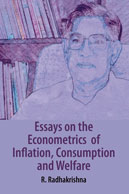Security Challenges and Implications of Climate Change for India
About the Book
The IDSA Working Group on Security Implications of Climate Change for India felt that while it would be proper to oppose the securitisation
of climate change, it would be prudent not to ignore its likely security dimensions. The Working Group Report identifies India's key vulnerabilities. Future projections of surface warming over India indicate that the annual mean area averaged surface warming is likely to be between 2 degrees and 3 degrees celcius and 3.5 and 5.5 degrees celcius by the middle and end of 21st century respectively. Trends in sea level rise indicate a possible rise between 1.06 to 2.75 mm per year. Every 1.0 degree rise in temperature would reduce wheat production by 4 to 5 million tonnes. Water scarcity will threaten food supplies in India. A quarter of our biodiversity could be lost.The Working Group felt that climate change cannot be delinked from the overall energy security and economic growth. The National Action Plan on Climate Change is a good beginning but its time-bound implementation needs to be ensured. India needs to improve energy efficiency in the industrial, household and transport sectors. The Working Group also looked at the possible adverse impact on the strategy and tactics of Indian armed forces. India should use climate change as an opportunity to make socio-economic development more sustainable.
Contributors
<p>Sunil Chauhan was commissioned in the Indian Navy in 1985, and is currently a Research Fellow at the Centre of Strategic Studies and Simulation (CS3), <span style="line-height: 1.6em;">USI, New Delhi. At CS3, his area of research is climate change, security and disaster risk management, with a focus on developing a new model/approach </span><span style="line-height: 1.6em;">to disaster risk management, based on resilience, adaptability and transformability. He specialises in disaster and emergency risk management and besides </span><span style="line-height: 1.6em;">having an MBA, is a Certified Master Trainer of Trainers from the Emergency Management Institute (EMI), Emmitsburg, USA. He has a number of </span><span style="line-height: 1.6em;">certifications (specific to disaster/emergency management) including the Advanced Level Certification in Incident Command System (ICS) from the Lal </span><span style="line-height: 1.6em;">Bahadur Shastri National Academy of Administration, Mussoorie, India and a Certificate in Humanitarian Assistance from UNHCR. He has published and </span><span style="line-height: 1.6em;">presented a number of papers in national and international journals, seminars and workshops on climate change, disaster and emergency management </span><span style="line-height: 1.6em;">issues and is a resource person for Indian institutes and other agencies for training on climate change, disaster management, conducting table top </span><span style="line-height: 1.6em;">exercises and risk assessment.</span></p>
<p> </p>
<p>Shebonti Ray Dadwal is currently a Research Fellow with the IDSA, specialising in energy-related issues. She has presented several papers in national and international seminars and conferences and has several peer-reviewed articles, projects and papers on issues related to energy security to her credit. In 2002, she published a book Rethinking Energy Security in India and is now writing her second book. Prior to joining IDSA, she worked as Senior Editor in The Financial Express and she has also served as Deputy Secretary at the National Security Council Secretariat.</p>
<p> </p>
<p>Purnamita Dasgupta holds the Ford Foundation Chair and heads the Environmental Economics Unit at the Institute of Economic Growth, Delhi. A Ph.D. in environmental economics, she has been teaching and researching on environmental issues and their inter-relationship with economic development for almost two decades. In the recent past, positions held by her include: Member-Secretary, Net Present Value (NPV) Committee, Visiting Professor, University of Cambridge, and Member, Executive Committee, Indian Society for Ecological Economics (INSEE). She is well acquainted with the current debates on environmental sustainability, climate change and socio-economic issues in India. She has been researching on the interface between socio-economic scenarios and climate change in India for India’s National Communication to the UNFCCC (NATCOM).</p>
<p> </p>
<p> </p>
<p>Sreeradha Datta is a Research Fellow at the IDSA since 1999. She is working on contemporary political and foreign policy related issues in South Asia. </p>
<p>She has authored The Northeast Complexities and its Determinants and Bangladesh: A Fragile Democracy and co-edited Changing Security <br />
Dynamics in Southeast Asia. She also has a number of articles in reputed national and international journals besides edited chapters in a number of books. Earlier she was associated with the Centre for Peace Studies and edited South Asia Watch (1997-1999). She has given a number of talks at various think-tanks, security establishments and other academic institutions, and has been interviewed by various national and international media outlets including BBC, Voice of America, The Economist, Time, Newsweek, etc.</p>
<p> </p>
<p>Sujit Dutta is a Senior Fellow at IDSA and works on China’s foreign policy and diplomacy, state and politics in 20th century China, Asian <br />
security issues, India-China relations, international relations theory. He is currently engaged in a research project on “The Rise of China and its Impact on Asian Security”. Prior to joining IDSA, he was a journalist with the Press Trust of India. He has been a member of the India-China Eminent Persons’ Group set up by the two governments in 2001 for high-level Track-II dialogue on bilateral problems and diplomatic relations. He has represented IDSA and the India Committee at the Council for Security Cooperation in the Asia Pacific’s Working Group on Confidence Building Measures. He is a frequent participant in national and international conferences. He has lectured and participated in seminars in Germany, China, Japan and the United States. He is also a regular speaker at India’s leading international relations and strategic affairs institutions, including the National Defence College, the College of Warfare and the College of Naval Warfare. He leads the China and East Asia programme at the IDSA.</p>
<p> </p>
<p>P.K. Gautam, a former Colonel of the Indian Army, is a Research Fellow since August 2005 at IDSA researching on environmental issues. <br />
He has authored: Environmental Security (2003), National Security: A Primer (2004), Operation Bangladesh (2007), Composition and Regimental System of the Indian Army: Continuity and Change (2008) and Environmental Travelogue: Assessing and Projecting Future Role of the Military and Identifying New Security Challenges (forthcoming).</p>
<p> </p>
<p>Arvind Gupta joined the Indian Foreign Service (IFS) in 1979. He presently holds the Lal Bahadur Shastri Chair in Strategic and Defence <br />
Studies at the Institute for Defence Studies and Analyses. Prior to joining IDSA, Dr. Gupta was Joint Secretary at the National Security Council Secretariat (NSCS). During his tenure at the NSCS, he dealt with a wide spectrum of national security issues. He has wide-ranging diplomatic experience gained while working in Indian missions abroad. His current interests include: the impact of globalisation on India’s security, the security, foreign policy and diplomatic challenges before India, energy security, climate change, institutional reform, India’s neighbours, internal security and technology and security. He has several books, articles and papers to his credit.</p>
<p> </p>
<p>Murari Lal currently, Chairman of Climate, Energy, Sustainable Development Analysis Centre (CESDAC) began his career as a Junior <br />
Scientific Officer at Indian Institute of Tropical Meteorology, Pune. He completed his Postdoctoral Fellowship in the Atmospheric Environment Service from Toronto. For over 20 years he had been teaching Environmental Physics and courses in Environmental Science at Indian and international universities/institutes. He specialises in global and regional/monsoon climate and its variability—scenario development, regional environmental change—integrated approach, sectoral vulnerability assessment (water, marine and coastal biodiversity, health and agriculture), landscape ecology, biophysical remote sensing—GIS applications, highland and coastal ecosystem modelling, EIA/SEA methods and practices, regional adaptation and mitigation approaches, carbon sequestration potentials and energy efficiency—clean development mechanism opportunities and options, natural resource management—technological options and interventions—environmental and economic feasibility, policy development including the review and analysis of multilateral environmental agreements in Asia—Pacific regional context, social dimensions and sustainable development. He has published a number of articles and reports in national and international scientific journals.</p>
<p> </p>
<p>Ajey Lele is an Indian Air Force Officer and is currently working as a Research Fellow at the IDSA. He specialises on issues related <br />
to weapons of mass destruction (WMD) and space technologies. He is a postgraduate in Physics and Defence and Strategic Studies. He has obtained his doctorate form JNU, New Delhi. He has published many articles in journals, websites and newspapers. He has authored two books titled: Bio-Weapons: The Genie in the Bottle and Weather and Warfare.</p>
<p> </p>
<p>Uttam Kumar Sinha is a Research Fellow at IDSA, working on non-traditional security issues. His areas of research include role of <br />
military in environment protection, human and water security. He is a member of the editorial board of Strategic Analysis and Assistant Editor of Strategic Digest. Besides, a doctorate from Jawaharlal Nehru University, he is a recipient of the Indo-Kuwait Dewan Award, 1995. Before joining the faculty at IDSA, he worked in the editorial of the national daily, The Pioneer and wrote the weekly column “Strategic Eye”. He is a Visiting Faculty Member of the Malviya Centre for Peace Research, BHU and a Visiting Fellow to the International Peace Research Institute, Oslo. He was awarded the 2008 Indo-British Chevening ‘Gurukul’ Fellowship to the London School of Economics. Dr. Sinha is co-author of the book Iraq War 2003: Rise of the New Multilateralism and co-editor of the book United Nations, Multilateralism and International Security.</p>
<p> </p>
<p>N.S. Sisodia took charge of IDSA in September 2005. He retired as Secretary in the Ministry of Finance in January 2005. Prior to this <br />
assignment, he was Secretary, Defence Production and Supplies, Ministry of Defence. He graduated from St. Stephen’s College, Delhi and obtained a Master’s Degree from Harvard University, USA, where he was a Mason Fellow. He joined the Indian Administrative Service in 1968 and served as District Magistrate in four districts of Rajasthan. He was later Principal Secretary, Industries & Commerce, Chairman and Managing Director of the State Industrial Development & Infrastructure Corporation and Chairman, State Electricity Board, Rajasthan. He has also been Vice Chancellor of Mohan Lal Sukhadia University, Udaipur. He is a member of the National Security Advisory Board.</p>



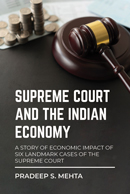



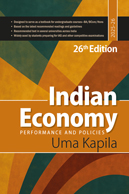
-web-194.jpg)
-front.jpg)
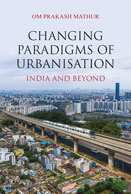






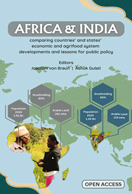
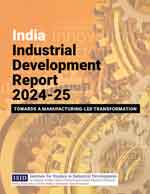
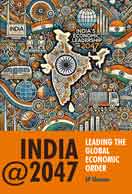
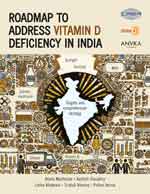
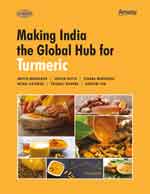
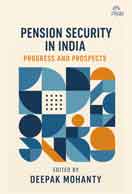
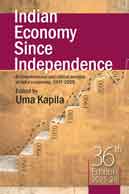
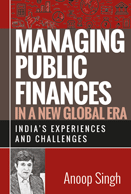
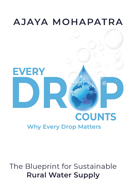
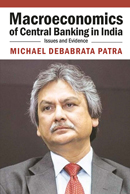

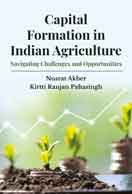



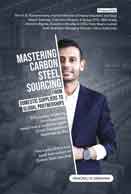







-COVER-web-194.jpg)





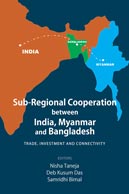






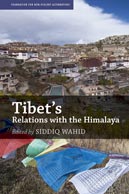



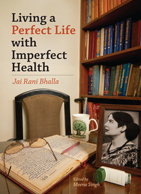












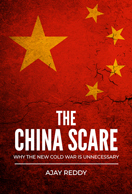
.jpg)






